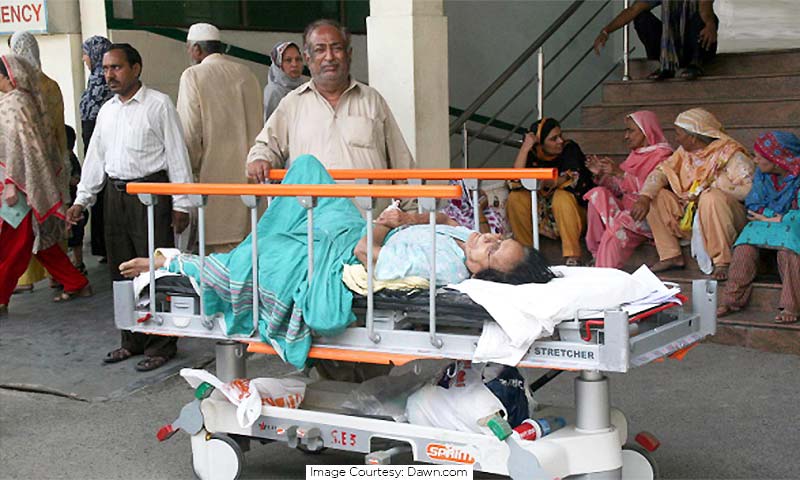Despite the technological and organizational advances of 21st century health-care systems, care scandals and burgeoning complaints from patients have raised concerns about patient neglect in hospitals. Patient neglect is an issue of increasing public concern from around the globe, yet remains poorly understood. Medical negligence is an act or omission by a doctor in which the care provided was deviated from accepted standards of practice and caused injury or death to the patient.
Patient neglect has previously been conceptualized as a problem associated with hospital staff’s attitudes and behaviors, with regulation and training cited as solutions. Yet, a community health psychology perspective shows that there is a wider symbolic, material, a more holistic and relational aspect associated with neglecting health care. And this scenario is dependent upon multi-hierarchical levels; the practitioners, the healthcare staff and the institution, the government and the patient. It’s very crucial to understand why patient neglect occurs at the primary level which eventually leads to intensive overburdening of specialized hospitals.
Image source: dawn.com
There are two dimensions of neglect that have been identified:
First, there is ‘procedure neglect’: this refers to failures by healthcare staff and organizations to meet standards of care (e.g. feeding patients, issuing medications).
Second, “caring neglect”, which refers to behaviors that lead patients and observers to believe that staff has uncaring attitude. This primary healthcare neglect is not only physical but also emotional.
In Pakistan, thousands of patients lose their life due to these kinds of negligence and only media has played a pivotal role in exposing the existence of malpractices by the doctors. There is an alarming statistics in Pakistan regarding medical malpractices and majority of them go unreported, on a daily basis, several cases involving medical neglect on part of the doctors and hospitals are witnessed by means of defective procedure techniques, lack of competent staff, leaving instruments in abdomen, amputating the wrong foot, administration of wrong vaccines, use of expired drugs, making the wrong diagnosis, giving wrong treatment, administered erroneous amount of anesthesia, failure to wear gloves etc.
Moreover, one of the most common kinds of primary care negligence is providing timely treatment to the patients. Many patients in critical condition are refused by the hospital, doctors and caretakers because they are unable to pay their dues in advance. In Pakistan, one of the major criticisms on doctors and hospitals is that they deliberately choose not to disclose any risks of surgeries to patients for commercial motives. It is important for doctors – particularly young doctors – to understand that they must respect the patients’ choice unless they lack the legal capacity to decide. The patients are entitled to the information, which would enable them to take a proper part in such decision. Under the law of negligence, a doctor is under a strict duty to take reasonable care to ensure that a patient is aware of material risks of injury that are inherent in a treatment and such duty could also be understood as a duty of care to avoid exposing a person to a risk of injury which he/she would otherwise have avoided.
Patient neglect also occurs due to a range of institutional and individual factors. These include ‘on-the-ground’ factors such as breakdowns in the relationship between patients and careers, burnout and compassion fatigue, high workloads, targets and a lack of training. These, in turn, are caused by the wider organizational environment, for example, resources, management, policy and culture. Consistent with organizational psychology theory, behavior ‘on-the-ground’ is shaped by the institutional environment and it must be changed if neglect is to be avoided.
One of the most important aspects of the failure of primary health care is on the governmental level. Health plays a key role in determining the human capital. Better health improves the efficiency and the productivity of the labor force, ultimately contributes to the economic growth and leads to human welfare. To attain better, more skillful, efficient and productive human capital resources, governments subsidize the healthcare facilities for its people. In this regard, the public sector pays whole or some part of the cost of utilizing health care services.
In Pakistan, the most important aspect of well-being is also the most neglected. In its 70-year history, Pakistan’s successive governments — civil and military — have not made health a priority. It is woeful that discussions around health policy receive little to no space in the agenda of political parties. And while the media tends to report heavily on specific health-related crises, such as the spread of polio and child deaths— meaningful debate around the causes of abysmal health services is virtually absent. The indifference in neglect of Pakistan’s government to health is reflected in the fact that Pakistan has been spending a mere 0.9 percent of its GDP on healthcare per capita for the last 10 years while W.H.O’s (World Health Organization) benchmark of health expenditure is at least 6 percent of the GDP. Only two countries, the Democratic Republic of Congo and Bangladesh, have a lower ratio of GDP to health spending.
This shows why primary health care is at stake, putting patients’ lives in treating conditions. There is a desperate need for general public of Pakistan to understand the roots of medical negligence. We firmly believe that there is a dire need for primary care specialization in Pakistan because of its different and dynamic scope as compared with other specializations. Specialization is needed to tap the true potential of primary care, to cater to the enormous research potential in primary care, and to collaborate effectively with public health to improve the health-care situation of the country.
Moreover, the healthcare institutions should provide proper training to its staff to avoid any kind of mishandling of the patients and provide them with timely treatments. Whereas the government should increase its spending on the healthcare department and improve the whole infrastructure and keep a proper check and balance on the medical practices; it will ensure the safety of the patients and avoidance of any kind of negligence from happening. However big the challenges are, we have to find answers to these challenges, failing at which would mean that our dismal state of public health will stay as it is or even get worse. Before a state of crisis erupts, we have to find solutions to the enormous public health challenges that lie ahead and a cadre of primary care specialists can fulfill this in the most cost-effective fashion!
REFERENCES:
https://www.worldnewsmd.com/Article/Mental%20Health/Patient-Neglect-In-Healthcare-Institutions
https://blogs.lse.ac.uk/healthandsocialcare/2013/05/16/understanding-and-preventing-patient-neglect-in-hospitals/
https://medicalprofessionals.aurorahealthcare.org/students/rehab/art/abuse-neglect-harassment-patients.pdf
https://www.who.int/countries/pak/en/
https://data.worldbank.org/indicator/SH.XPD.PUBL.ZS?locations=PK
https://www.jstor.org/stable/41258785?seq=1#page_scan_tab_contents
https://bmchealthservres.biomedcentral.com/articles/10.1186/1472-6963-13-156
https://www.ncbi.nlm.nih.gov/pmc/articles/PMC3660245/


